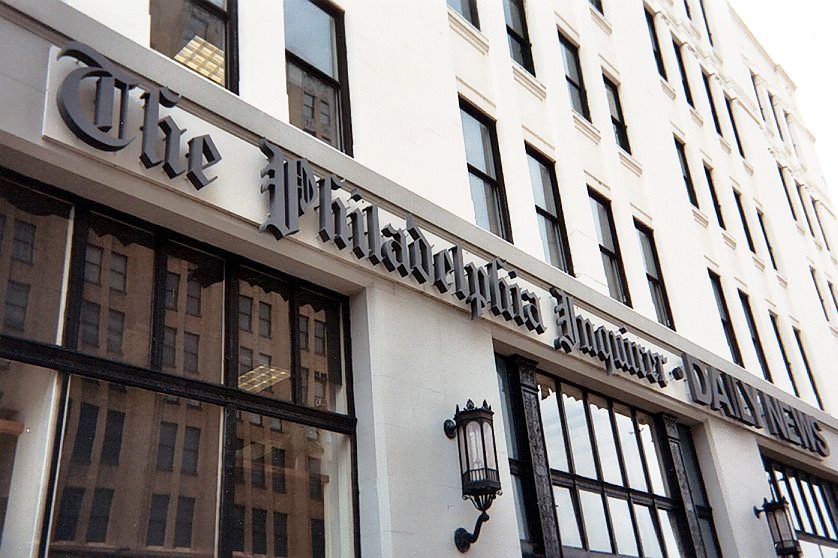Sign up for The Media Today, CJR’s daily newsletter.
One of the most intriguing experiments designed to help save local journalism is getting a major boost.
The Lenfest Institute for Journalism, launched in January 2016 with an endowment of $20 million from philanthropist Gerry Lenfest, announced today it has raised $26.5 million in additional gifts from a variety of sources. Impressed by the response, Lenfest says he’s ponying up another $40 million, an amount that will have to be matched.
“It’s a great day for local journalism, but it also symbolizes how much work we have to do,” says Jim Friedlich, the institute’s executive director and CEO. “For the moment, at least, I’m pleased as punch by all of this.”
Lenfest, who had acquired The Philadelphia Inquirer, Philadelphia Daily News and philly.com as part of a group of local notables determined to save the struggling news outlets, later became the sole owner. He set up the institute as a vehicle for exploring ways to buttress watchdog journalism in the digital age and donated the news outlets to the new entity. The idea is to both strengthen the news organizations, which have shrunk dramatically over the years, and use Philadelphia as a laboratory for helping to safeguard journalism across the nation.
“Great journalism is more vital to our democracy today than ever before and never before has it faced such challenges,” Lenfest, 86, said in a statement Wednesday. “Based upon this groundswell of interest in our mission, I have decided to match some of the donations already received and to offer further matching gifts to support future giving.”
Friedlich, a former Wall Street Journal business executive who came on board last September, says the outpouring of financial support “reflects how important people consider local journalism,” which he says had been “a theory in need of proof.”
Friedlich also says he believed the nation’s fraught political climate had something to do with the response. “Absolutely,” he replied. “There’s deep concern about the veracity of news, the sustainability of news, the future of independent journalism. It’s felt across the political spectrum.”
And is Trump, with his fast-and-loose approach to facts and his campaign against journalists, a driving force? “I believe he is,” Friedlich says, adding, “we would feel the same way if the criticism of independent news is coming from the other party.”
In a number of big cities, in which wealthy locals have ridden to the journalistic rescue, it has been a single white knight: Boston Red Sox owner John Henry acquiring The Boston Globe, Minnesota Timberwolves owner Glen Taylor purchasing Minneapolis’ Star Tribune. In Philadelphia, Lenfest wanted to open up the tent. Friedlich sees the diversity of donors—well-known philanthropists and venture capitalists, local and national foundations—as a validation of Lenfest’s approach. Friedlich says the mission is to use “Philadelphia as a market and The Philadelphia Inquirer as a heritage property to serve as a lab for innovation.”
The overarching focus, he says, is “a recognition of local and metro markets as a key battleground in the sustainability of news.” Lenfest has frequently said that to save the journalism, it is essential to save the business.
“The center of the bullseye,” Friedlich says, is the Philadelphia Media Network, the parent company of the three Philly news outlets. Owned by the nonprofit institute, the network still functions as a business. But in an important shift, Lenfest converted it into a public benefit corporation, which means no public shareholders and no scrutiny from security analysts. It means more time to try to design a future.
The institute has a small team of media operators, and they have worked with the Philly properties on such things as mobile product development, designing a metered payment system, newsroom reorganization, and other transformation-related projects.
It has also provided substantial training in the newsroom, with an eye toward digital skills, use of audience metrics, and new forms of multimedia storytelling including enhanced watchdog journalism.
In mid-May, the institute plans to seek out grant applications from Philadelphia and elsewhere in such research areas as new approaches to reader monetization, digital product ideas, and activities centered on audience diversity.
And it will launch a Nieman Fellow-type residency program, bringing fellows to Philadelphia to brainstorm on fresh ideas about such topics as user-centric design and user engagement.
Friedlich sees the early success of the institute as “another in a long history of proof points for Philadelphia and its ability to do big things.”
Has America ever needed a media defender more than now? Help us by joining CJR today.



